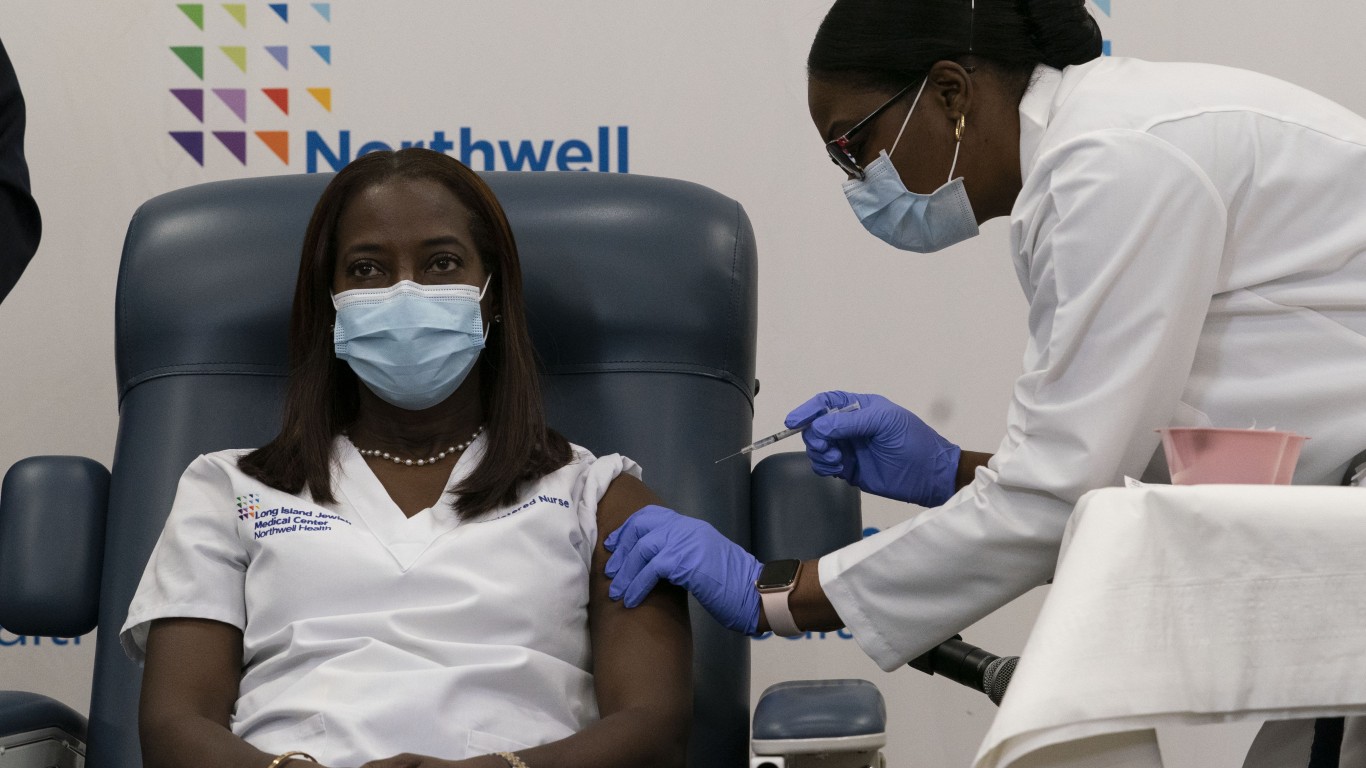Health and Healthcare
COVID-19: This Is When Americans Will Need Third Shot, Scientist Says

Published:

The rate of the spread of COVID-19 had slowed across America. Despite a new surge, increases in daily fatal and confirmed cases are still about half what they were three months ago. Nevertheless, 573,551 Americans had died as of Tuesday, which is about 20% of the world’s total. The global death total just moved above a staggering 3 million. Confirmed cases have reached 31,976,092 in the United States, or about 23% of the global number. Hospitalizations, which were over 100,000 a day during the peak wave, have dropped into the thousands.
[in-text-ad]
Variants have become a large part of the conversation among public health officials and epidemiologists. One variant, first identified in the United Kingdom and known as B.1.1.7, is more transmissible than the strain that was dominant in the United States over most of the pandemic. The Centers for Disease Control and Prevention (CDC) also officially tracks these other variants: B.1.351, P.1, B.1.427 and B.1.429. Worries are that some may be more deadly than others and that vaccines may not protect against one or more variants.
Scientists believe that new variants will continue to appear, some of which may originate in America and others that may come from overseas. Tuesday, it was announced that “Scientists at the Texas A&M University Global Health Research Complex (GHRC) have identified a variant of the COVID-19 virus — ‘BV-1’ — that could present a new challenge to public health.”
At this point, according to The New York Times, 40% of Americans have been given at least one dose of a vaccine, and 26% are fully vaccinated. As of Wednesday, 277,938,875 doses have been delivered, and from those 215,951,909 shots have been given, or about 78%.
There has been a debate among scientists and doctors about when people will need additional doses. Some of this has to do with how effective vaccines are against variants. A week ago, Pfizer CEO Albert Bourla said that people would likely need a third dose within 12 months of being vaccinated.
Bourla’s opinion was supported Wednesday by Dr. Ozlem Tureci, the chief medical officer of BioNTech, which helped Pfizer develop its vaccine. She commented to CNBC:
… people will need to get vaccinated against the coronavirus annually, like for the seasonal flu. That’s because, she said, scientists expect vaccine-induced immunity against the virus will decrease over time.
The Pfizer vaccine now is given in two doses.
That means almost 300 million Americans will need another dose, almost certainly late this year or early next.
Click here to read “Living Through One Year Of COVID-19.”
Are you ahead, or behind on retirement? For families with more than $500,000 saved for retirement, finding a financial advisor who puts your interest first can be the difference, and today it’s easier than ever. SmartAsset’s free tool matches you with up to three fiduciary financial advisors who serve your area in minutes. Each advisor has been carefully vetted and must act in your best interests. Start your search now.
If you’ve saved and built a substantial nest egg for you and your family, don’t delay; get started right here and help your retirement dreams become a retirement reality.
Thank you for reading! Have some feedback for us?
Contact the 24/7 Wall St. editorial team.